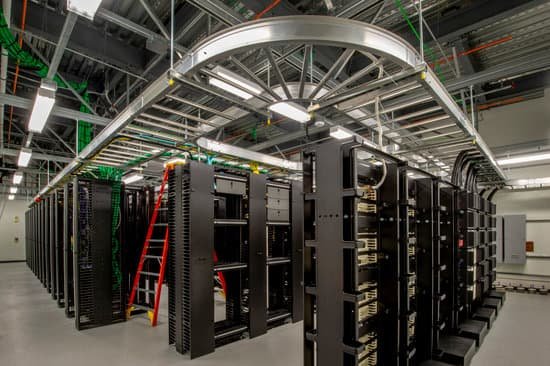What is an Ubuntu One account? Ubuntu One is the single account you use to log in to all services and sites related to Ubuntu. If you have an existing Ubuntu Single Sign On account, this is now called your Ubuntu One account.
Why do I need an Ubuntu One account? The goal of this service is to provide a single, central login service for all Ubuntu-related sites, thus making it more convenient for Ubuntu users and community members to access information, communicate, and contribute.
What is Ubuntu One used for? Ubuntu One is a suite of online services from Canonical. The service enables users to store and sync files online and between computers and share files and folders with others using file synchronization.
Is there an Ubuntu certification? The Ubuntu Certified Professional exam is now available worldwide at over 7,000 Thomson Prometric and Pearson VUE testing centres.
What is an Ubuntu One account? – Additional Questions
Is a Linux certification worth IT?
The certification covers a variety of topics, including system administration, networking, and security. Earning this certificate can help you in many different job roles, such as system administrator, network administrator, and security analyst. The Linux Essentials certification is well worth the investment!
How hard is the Linux certification?
You’ll face up to 90 questions on the Linux+ exam, and since the test is only 90 minutes long, you’ll need to be on your A-game. Passing the Linux+ requires earning at least a 720 score out of a potential 900 points, which is roughly an 80 percent score.
How do I become a certified Linux administrator?
Candidates should have completed training in Linux system administration. LFCS was developed by The Linux Foundation to help meet the increasing demand for Linux administration talent. The exam consists of performance-based items that simulate on-the-job tasks and scenarios faced by sysadmins in the real world.
How much does Linux certification cost?
The CompTIA Linux+ certification exam is 90 minutes long. It requires a passing score of 720 (on a scale of 100 to 900) and costs $338 USD. The exam covers a wide variety of topics, including: Cybersecurity.
How do I get certificates in Linux?
In order to obtain your RHCSA, you’ll need to pass the Red Hat Certified System Administrator Exam (EX200). Although not prerequisites, the Red Hat System Administration I (RH124) and Red Hat System Administration II (RH134) training resources will help you to prepare for the RHCSA exam.
How do I get Kubernetes certified?
Certified Kubernetes Administrator (CKA)
Candidates have three hours to take the exam and must score 74% or higher to earn the certification. The CKA exam tests the following areas: 8% – Application lifecycle management. 12% – Installation, configuration & validation.
Is Kubernetes exam difficult?
Kubernetes is hard, and so is getting certified on the container orchestration technology, but there are some surefire resources, tips, and tricks that will help you pass the tough exams.
Is Kubernetes a good career?
Kubernetes skills are the most in demand for modern operational roles, such as devops and site reliability engineering (SRE) jobs. These are also the roles where the money is. In the United States, 95% of devops practitioners made more than $75,000 a year in salary in 2020, up from 93% in 2019.
Is Kubernetes certification free?
IBM Open Labs: Kubernetes on IBM Cloud
You can grow your skills with IBM Cloud Open Labs at no cost. IBM CloudLabs offers interactive browser-based training for deploying and operating clusters on IBM Cloud Kubernetes Service for up to four hours. There are no downloads or configuration required.
What is the salary for Kubernetes administrator?
Kubernetes Administrator salary in India ranges between ₹ 4.0 Lakhs to ₹ 26.5 Lakhs with an average annual salary of ₹ 9.6 Lakhs.
Is Kubernetes same as Docker?
In a nutshell, Docker is a suite of software development tools for creating, sharing and running individual containers; Kubernetes is a system for operating containerized applications at scale. Think of containers as standardized packaging for microservices with all the needed application code and dependencies inside.
How many days it will take to learn Kubernetes?
Estimated time to complete
It will take you approximately 13 hours to complete this entire learning path.
Why is Kubernetes so difficult?
The reason is simple. Kubernetes defines a complex infrastructure so that applications can be simple. All of those things that an application typically has to take into consideration, like security, logging, redundancy and scaling, are all built into the Kubernetes fabric.
What is replacing Docker?
BuildKit. If you run a newer version of Docker, you might be familiar with BuildKit, a second-generation image-building Moby project. BuildKit provides parallel build processing, which improves performance and results in faster builds. Both BuildKit and Docker run using a daemon.
Should I learn Docker or Kubernetes first?
When it comes to learning Docker or Kubernetes first and you ask yourself do I need to learn Docker before Kubernetes? The answer is that you should instead learn about containerization engines.
Does Docker require coding?
Having that basic Windows knowledge, you should be able to follow on the Learn Docker book as long as you have the prerequisites stated in the book: Basic experience creating applications with one of the following technologies: . NET Core, Java, Node. JS, PHP or Python.
Can Kubernetes run without Docker?
Can Kubernetes Run Without Docker? The answer is both yes and no. Kubernetes, in itself, is not a complete solution. It depends on a container runtime to orchestrate; you can’t manage containers without having containers in the first place.
